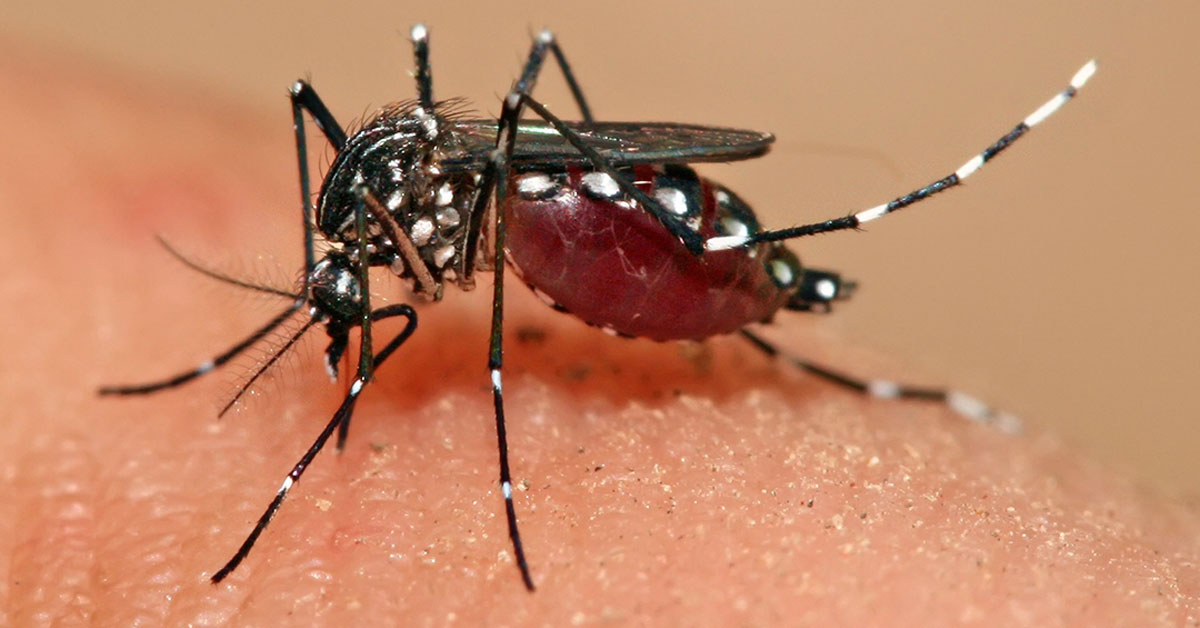
Epidemiologists describe the results as “staggering” and “epochal”
While uncertain and risky GMO approaches to mosquito-borne diseases continue to raise concerns in the countries targeted for experimentation, like Brazil, Burkina Faso, and most recently the United States, two remarkable breakthroughs have recently been made involving highly effective natural means of preventing the transmission of such diseases.
In the most recent instance, a randomized field trial found that mosquitoes infected with a natural bacterium called Wolbachia reduced cases of dengue by an "extraordinary" 77%. Wolbachia stops the insects from transmitting some viruses when they bite people.
An article in the journal Nature says that epidemiologists typically speak in carefully qualified and caveated language, but not in this case. The newly released results from the trial of this biological technology – that aims to stop the spread of mosquito-borne diseases by using a naturally occurring bacteria – have them using terms such as “staggering” and “epochal”.
The study, conducted in an Indonesia city, showed that releasing the Wolbachia-infected mosquitoes led to a steep drop in cases of dengue fever. The findings provide the strongest evidence yet that the technique, in development since the 1990s, could rid the world of some of its mosquito-borne diseases, the researchers say.
The results were reported in a press release on 26 August, though the full study is yet to be published.
“It is a huge breakthrough,” said Nicholas Jewell, a Professor of the Graduate School at the University of California, Berkeley, who designed the study and led the statistical analysis. “We’ve now shown that it works in one city. If this can be replicated and used widely, it could eradicate dengue from several parts of the world for many years.”
Immo Kleinshmidt, an epidemiologist at the London School of Hygiene and Tropical Medicine who was part of an independent board monitoring the trial, said, “I suspect that the demand for this intervention from dengue-endemic countries will result in widespread introduction of this method, with a good prospect of eventually eliminating the disease. The significance of this result is epochal.”
Strategy may also work for other viruses
The study looked only at dengue, but the mosquito control strategy may likely work for other viruses carried by A. aegypti mosquitoes, including Zika, chikungunya and yellow fever.
News of the remarkable success of this non-GMO approach follows on from recent news of the discovery of a naturally occurring microbe that completely protects mosquitoes from being infected with malaria. This finding is also said to have “enormous potential” to control this mosquito-borne disease which kills more than 400,000 people each year.
As the microbe is already found in some wild mosquitoes, using this approach to tackle malaria is not introducing anything new. It also does not seem to harm the mosquitoes and would not kill them, so would not impact on ecosystems that are dependent on mosquitoes as a food source.
Troubling GMO experiments raise multiple red flags
Florida has had small outbreaks of dengue, which are being used as justification for the release of 750 million mosquitoes that have been genetically modified to reduce local populations.
The plan has been condemned as a public "Jurassic Park experiment". Opponents warn of possible damage to ecosystems, if mosquito populations crash, and the potential creation of hybrid, insecticide-resistant mosquitoes.
As well as GMO mosquitoes, CRISPR-based gene drives aimed at crashing mosquito populations are also in the works. Gene drives have been called an “extinction technology” because this form of genetic engineering aims to drive a trait detrimental to an organism, e.g. sterility, through a target population at a rapid pace, wiping them out within a few generations.
Despite being extremely controversial, gene drive mosquitoes are set to be released in Burkina Faso within the next two years, and the Target Malaria project has already released GMO mosquitoes in the country.
Other experiments aimed at killing mosquitoes in Burkina Faso have included the use of a fungus genetically engineered to introduce a toxin from the lethal Australian Blue Mountains funnel-web spider. According to the African Centre for Biodiversity (ACB), these experiments “raise many troubling legal, biosafety, ethical, political and human rights concerns”.
The ACB is also concerned about what they see as the use of Burkina Faso as “an experimental testing ground for new and controversial GM technologies” when other less risky options are available.
Image: Muhammad Mahdi Karim via Wiki Commons
reproduced under GNU Free Documentation License 1.2










